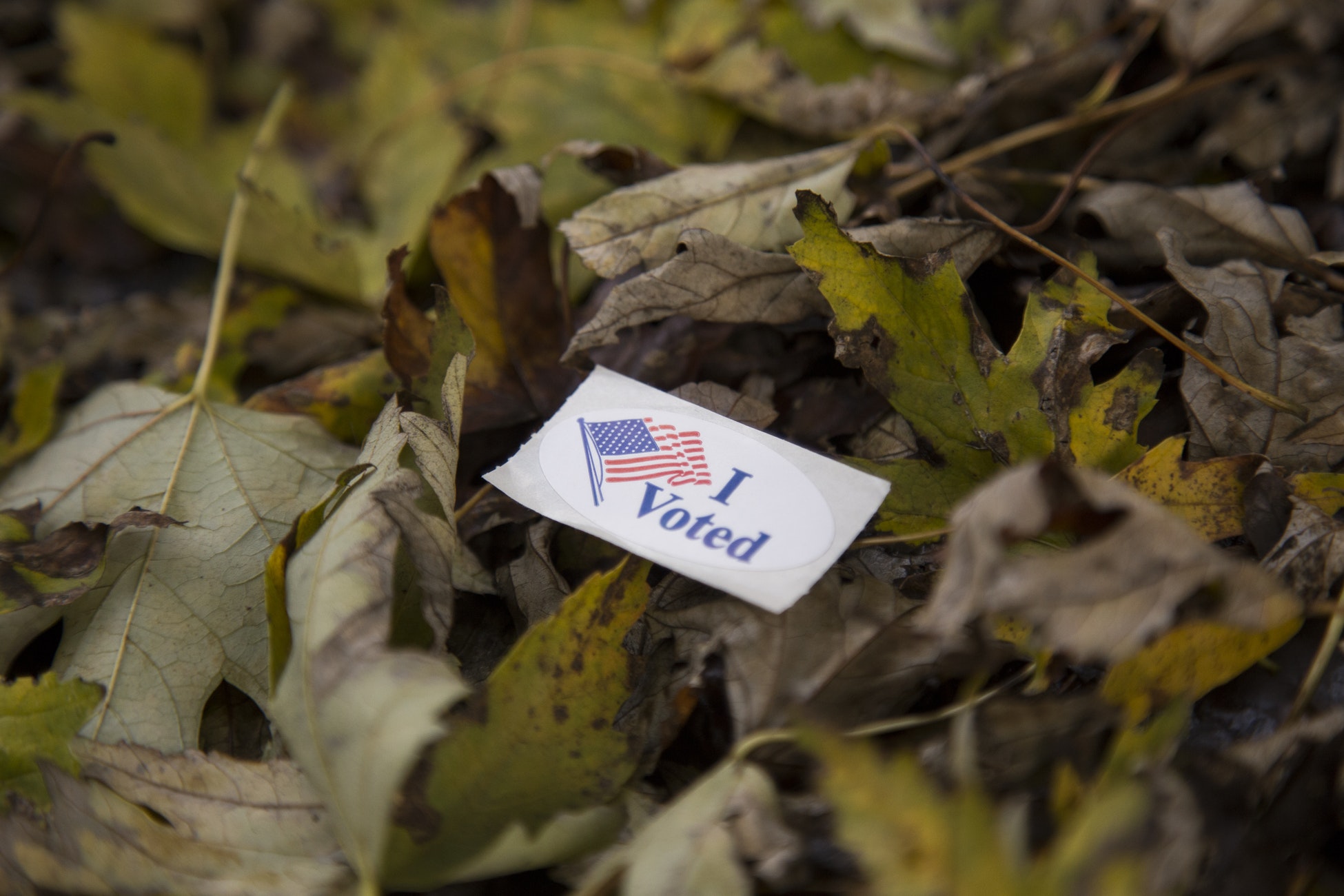BY KEVIN FRAZIER
Before my first visit to Vermont last month, I assumed the state’s main exports were Ben & Jerry’s and beer. And though it’s true that I’ll be bringing a pint (or two) of each back home, I’m most excited to be leaving with renewed civic optimism.
Vermonters have created a governing climate that’s in scarce supply and high demand around the nation. It’s a climate that I was able to explore through a trip organized by the Taubman Center for State and Local Government for Harvard Kennedy School students interested in economic development and the urban/rural divide. The latter issue is what sparked my interest in the opportunity to meet with Vermonters from every corner of the state. Thankfully, the trip did not disappoint: the group of students and I attended a lot of meeting on a slew of weighty issues. I spoke with residents from the Northeast Kingdom region—far from Montpelier—as well as to those that seem to call the Capitol’s halls home. I quickly learned that Vermont’s model of getting stuff done should be shared around the nation.
Three traits of Vermont’s civic atmosphere need to be spread as far as Heady Topper’s reputation as a world class beer.
First, a commitment to putting people above party. In conversations with legislators of every rank and age, it became clear that they truly felt a stronger obligation to represent their constituents than to advance their party’s interests. This fidelity to people over party may stem from the state’s legislator to constituent ratio; each member of the Vermont House represents slightly more than 4,100 of their neighbors, which is second only to New Hampshire (1:3,291). Senators represent around 21,000 Vermonters, the fourth lowest ratio. States with larger ratios—such as California (1:77,372)—may soon see a similar prioritization of people as party-based structures are replaced with nonpartisan processes such as the top two primary system that removes the primacy of partisan affiliation.
Despite the Vermont legislature’s structural incentives to focus on community more than party politics, Vermont’s officials are not immune to partisanship. At times, such as during the recent debate surrounding abortion, partisan passion flares up, but the animosity appears to dissipate soon after. One senior legislator privately disclosed to our delegation that even after hours of back and forth on the weighty topic, they still felt that the legislature was a place for real deliberation; other legislators on both sides of the aisle echoed this sentiment (note that these officials will remain anonymous because of the private nature of the conversations). What follows from this dynamic is a legislative body that’s still capable of having civil conversations centered on community needs instead of partisan positioning.
The ties between legislators and constituents can be deepened though. Simple reforms such as a more regular legislative schedule could help “unconventional” candidates with unique connections to diverse communities run for office. The benefits of everyday community members becoming officials can only be fully realized if the chance to run is widespread and widely pursued. Presently, there’s a lot of room for representative improvement: Vermont’s legislators tend to be among the oldest (61 is the average age) and least diverse (even when accounting for the state’s overall limited racial diversity) in the nation. A more diverse set of state and local leaders will help Vermont continue its journey to be a government that’s truly of, by, and for all people.
Community-based governing goes beyond the level of elected officials in Vermont. States and communities around the US would be wise to mirror this state’s second civic export — town meeting week. This annual affair reduces friction to civic engagement. The gathering of town leaders and laypeople alike results in better policymaking and more unified communities. The strength of the state’s deliberative processes, such as town meeting week, became clear in the early 2000s when the state experienced what some still refer to as a Civil War over civil unions for LGBT couples.
The other students and I had the chance to meet with officials that helped the state navigate this so-called Civil War. Ultimately, what guided the state away from a pit of partisan bickering was a listening tour, made possible by a political culture that cultivates regular conversation on divisive topics. Officials traversed the state and allowed anyone and everyone to make their voice heard. People still disagreed with the final outcome, but the participatory process eased tensions.
Even though pre-existing mechanisms proved their potency by mitigating a full-on political skirmish over civil unions, communities continue to re-examine what can be done to make town meetings and other deliberative processes more accessible. For example, in Montpelier, the Mayor is overseeing an initiative to empower non-citizen residents by granting them voting rights on some city matters. These efforts to expand participation and improve processes should be an ongoing process, but at the same time, their findings should be extensively shared as they are gathered. Vermonters, like the Harvard Kennedy School alumna I spoke with over dinner, would wager that more town meetings—where policy and potlucks collide—would help even the most divided communities in our nation find common ground or at least common recipes.
This is a safe bet. From Burlington to Winooski, Vermont communities have seen returns on the state’s inclusive democratic processes. In particular, these processes have turned several communities into leaders in resettling refugees from around the world; Vermont ranks fourth nationally in terms of refugees resettled per capita. Community efforts to bring new residents into the democratic fold have evidenced that a more inclusive civic society is a more productive and creative one as well. Case in point, refugees (now new Vermonters) have introduced new crops and cultural norms to the area through their resettlement at Pine Island Community Farms. The farm fosters a safe place for refugees to continue their traditional farming techniques while also pairing them with more seasoned Vermonters that are eager and ready to bring them into the state’s civic community.
The final export is the willingness of Vermonters to openly debate big questions rather than let a dirty dish soak for future residents to clean up. It’s no secret to a brewmaster in Burlington or farmer in the Northeast Kingdom that the urban-rural divide is real and expanding here. And analysis backs them up: there’s a 25 percent difference in broadband access between rural and urban Vermonters and a growing difference in how much each region contributes to the state’s GDP growth. But, whereas some communities refuse to have conversations about whether a divide even exists, residents here will quickly admit that there’s a crisis. This honesty means that people have already started thinking about solutions instead of squabbling about definitions. If more communities adopted this model then fewer cans would be kicked down the road. After all, to solve a problem you have to admit it exists. Of course, Vermonters have yet to unify around the best course of action to bridge inequities but the officials the group and I met, including Governor Phil Scott and Senate President Becca Balint, seem devoted to exploring bold ideas.
It may seem far fetched to think that Vermont’s ways can become commonplace. But a report issued at the bequest of Senator Mike Lee (R-UT) makes clear that policies incubated in Vermont have transcended the state’s borders; a line can be drawn from Vermont on through the West that shows the transmission of civic culture across states as evidenced by similarities in each state’s political culture. Research from J. Wesley Leckrone shows that these similarities are significant even when accounting for economic and demographic differences among states. There’s no reason this transmission of ideas cannot continue even as states seemingly become more different.
Democratic processes that bring government to the people, civic values that encourage participation, and political norms that foster experimentation are three nascent Vermont exports. Visitors and Vermonters alike have a duty to find ways to share what’s happening in the Green Mountain State.
One way to begin? Advocate for more frequent town meetings in your community, wherever you live. Vermonters have demonstrated that a community that meets together governs better. Legislators and community leaders need to share those outcomes and processes with the rest of the United States via the publication of templates for progressive legislation, guides for how other states could adopt similar practices, and editorial pieces documenting their successes. And visitors need to do more than bring home syrup and cider; they should actively engage with the state’s residents to learn more about their unique approach to governing.
Kevin Frazier is a native Oregonian, where he previously served as Gov. Kate Brown’s Executive Assistant and started Passport Oregon, an environmental nonprofit. He is currently in a concurrent degree program at the Harvard Kennedy School (pursuing a Masters of Public Policy) and the UC Berkeley School of Law (JD).
Edited by Anna Mysliwiec and Hilary Gelfond
Photo by Josh Carter

